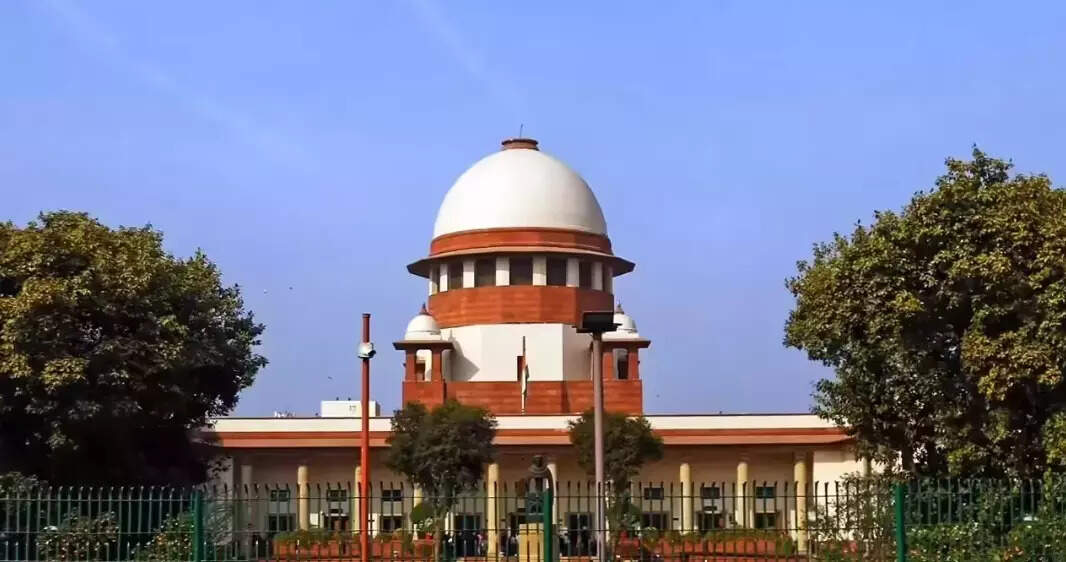SC: Governors Can’t Stall State Bills Forever, But No Fixed Assent Deadline
In a landmark decision, the Supreme Court on Thursday made it clear that Governors cannot sit indefinitely on Bills passed by state Assemblies. The ruling came from a five-judge Constitution bench led by Chief Justice B R Gavai , responding to President Droupadi Murmu’s rare Article 143(1) reference seeking clarity on the issue.
“We don't think governors have unfettered power to sit over bills passed by state assemblies,” the bench firmly stated, cutting through months of debate on the limits of gubernatorial authority.
Emphasising the essence of cooperative federalism, the court stressed that Governors must stay engaged with state legislatures. “In India's cooperative federalism, Governors must adopt a dialogue process to iron out differences with the House over a Bill and not adopt an obstructionist approach,” the bench observed.
The court clarified that while Article 200 gives Governors discretion in granting assent, this power cannot be used to create legislative deadlock. If a Governor withholds assent, the Bill must be sent back to the Legislature, not left in limbo.
Chief Justice Gavai also clarified that no fixed timelines could be imposed for granting assent. The bench rejected the idea of “deemed assent,” calling it contrary to the Constitution’s spirit and the separation of powers. However, constitutional courts can still scrutinise a Governor’s decisions, even though Governors themselves cannot be held personally liable. Courts may direct them to act within a “reasonable period,” but nothing more rigid.
The bench also touched on the President’s constitutional role, noting: “The Role of president in protecting the constitution is binding on the union as a cohesive unit is crucial. President will be unable to excercise this option unless the governor reserves the bill for his assent. It is unlikely that the council of ministers will advise the governor to return the bill or refer it to President. It is unfathomable to hold that governor is not empowered with discretion under article 200.”
The verdict followed extensive hearings held over 10 days, after the court reserved its judgment on September 11. The Centre, several states, and multiple stakeholders put forth arguments before the bench comprising Chief Justice Gavai and Justices Surya Kant, Vikram Nath, P S Narasimha and A S Chandurkar.
This case was triggered when President Murmu, using her seldom-invoked power under Article 143(1), sought the Supreme Court’s opinion on whether time-bound rules could be imposed for the Governor or President while dealing with state Bills . Her reference came after an April 8 ruling by a two-judge bench that attempted to fix specific deadlines, a move now effectively overruled.
With this judgment, the Supreme Court has restored clarity and balance in Centre, state relations, signalling that constitutional functionaries must act with responsibility, dialogue, and due respect for the democratic process.

“We don't think governors have unfettered power to sit over bills passed by state assemblies,” the bench firmly stated, cutting through months of debate on the limits of gubernatorial authority.
Emphasising the essence of cooperative federalism, the court stressed that Governors must stay engaged with state legislatures. “In India's cooperative federalism, Governors must adopt a dialogue process to iron out differences with the House over a Bill and not adopt an obstructionist approach,” the bench observed.
You may also like
 Gujarat: Fire breaks out at wood warehouse in Surat
Gujarat: Fire breaks out at wood warehouse in Surat- Aishwarya Rai Bachchan pays emotional tribute to father Krishnaraj Rai on birth anniversary
 Chandigarh police bust Interstate cyber-fraud racket; four arrested
Chandigarh police bust Interstate cyber-fraud racket; four arrested- “We can't have him” — Patrick Beverley's Barstool career put in jeopardy as Dave Portnoy responds to mounting felony allegations
 26 Online Platforms Claim Compliance With Dark Pattern Norms
26 Online Platforms Claim Compliance With Dark Pattern Norms
The court clarified that while Article 200 gives Governors discretion in granting assent, this power cannot be used to create legislative deadlock. If a Governor withholds assent, the Bill must be sent back to the Legislature, not left in limbo.
Chief Justice Gavai also clarified that no fixed timelines could be imposed for granting assent. The bench rejected the idea of “deemed assent,” calling it contrary to the Constitution’s spirit and the separation of powers. However, constitutional courts can still scrutinise a Governor’s decisions, even though Governors themselves cannot be held personally liable. Courts may direct them to act within a “reasonable period,” but nothing more rigid.
The bench also touched on the President’s constitutional role, noting: “The Role of president in protecting the constitution is binding on the union as a cohesive unit is crucial. President will be unable to excercise this option unless the governor reserves the bill for his assent. It is unlikely that the council of ministers will advise the governor to return the bill or refer it to President. It is unfathomable to hold that governor is not empowered with discretion under article 200.”
The verdict followed extensive hearings held over 10 days, after the court reserved its judgment on September 11. The Centre, several states, and multiple stakeholders put forth arguments before the bench comprising Chief Justice Gavai and Justices Surya Kant, Vikram Nath, P S Narasimha and A S Chandurkar.
This case was triggered when President Murmu, using her seldom-invoked power under Article 143(1), sought the Supreme Court’s opinion on whether time-bound rules could be imposed for the Governor or President while dealing with state Bills . Her reference came after an April 8 ruling by a two-judge bench that attempted to fix specific deadlines, a move now effectively overruled.
With this judgment, the Supreme Court has restored clarity and balance in Centre, state relations, signalling that constitutional functionaries must act with responsibility, dialogue, and due respect for the democratic process.









